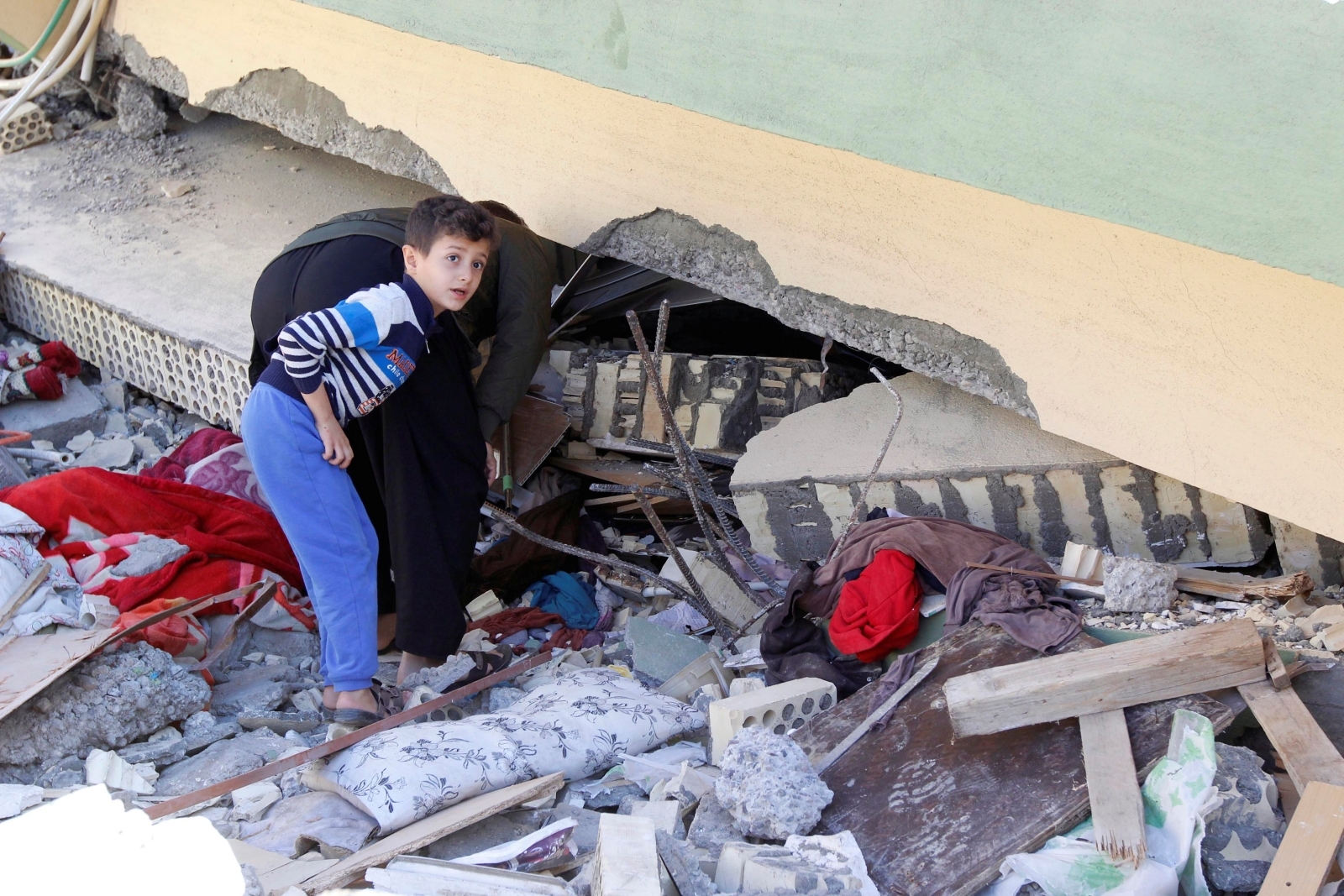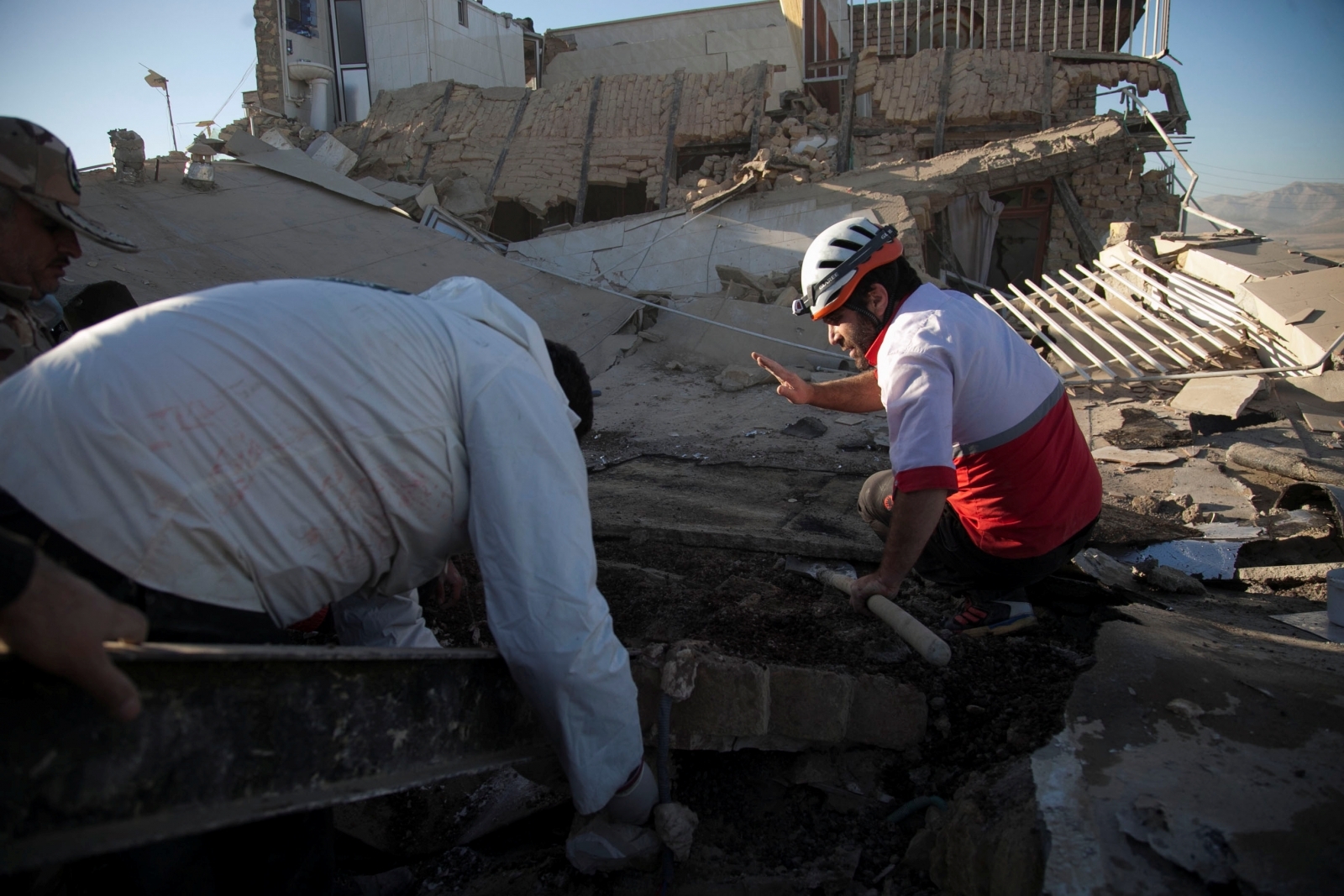The Iran-Iraq quake is the deadliest of the year – We must do more to help victims
Quake latest in a line of humanitarian calamities in region already suffering from conflict and mass displacement.
The massive magnitude 7.3 earthquake that struck the Iraq-Iran border on 12 November, killing more than 500 people and injuring thousands, is the deadliest earthquake of the year. Surpassing the one that hit Mexico City in September, it was felt as far away as Turkey and Pakistan.
I was in Duhok, Iraq's Kurdistan, with friends when the buildings began to tremble. Having lived in Nepal and through a series of quakes there, I immediately knew what was going on and I could tell that it was a strong earthquake. It was terrifying and I feared for what the impact might be.
After some quick planning with the humanitarian team, we set off to find out what had happened and to assess the damage. Initial reports already indicated that thousands of people across the region had been injured and news was trickling in of deaths, largely on the Iranian side.
We were particularly concerned about the impact on children, who are so vulnerable to such disasters. Not only do they face a physical risk from collapsing buildings, but also an emotional one due to the chaos that quakes bring.
Children were at home tucked up in bed or watching television with their families when the quake struck.
Their homes were in fact the deadliest place to be. The remote region's houses are typically made of mud bricks or concrete "breeze blocks" , which are not built to withstand earthquakes.
As we made our way towards the epicentre into a town called Darbandikhan, I saw first-hand the damage. Whole apartments had pancaked, their concrete floors collapsed on one another and spilt into the street, giant rocks tumbled from mountainsides damaging cars and buildings.
The town's hospital has been knocked out of action, forcing an evacuation of patients just as they needed to take in new casualties. Having relocated to a primary health-care facility, our mobile medical clinic was requested to provide assistance to the local authorities.






When we arrived, we tried to organise ourselves amid the chaos. We set up tents outside the facility, where medical staff was working with patients and trucks were coming and going bringing in beds and needed materials. Our team set up outside to provide triage, treating minor injuries and referring the in-patient needs to hospital staff.
Those who came were still visibly unsettled. I watched a mother who came in with her daughter cry while trying to explain their needs to the team as she received comfort in addition to medical treatment.
Equipped with health educators, psychological first aid provided a safe place for venting fears and the emotions that our patients had not even had the time to face yet.
#IraqIran #earthquake: "We are treating minor injuries in our mobile clinics. The more serious cases are passed on to the local hospital which is struggling to cope," said World Vision's liaison advisor, Rebekah Price. @mck_beth @RichardJSpencer pic.twitter.com/Tvu8qdUAG5
— WorldVisionUK News (@WVUKNews) November 14, 2017
The quake is the latest in a line of humanitarian calamities to face a region already suffering horrible conflict and massive displacement.
Most damage and loss of life occurred in Iran.Impacted areas in the Kurdish Region of Iraq are across the Sulaymaniyah district, particularly in Darbandikhan, Khanqin, Halabja and Maydan.
Health care continues to be a large need in Darbandikhan, particularly as some families are still sleeping in parks, unable to return to their homes due to safety concerns, or paralysed by fear of being indoors.
We gather that, while much aid has been pledged, more has to be done to help victims. There is an immediate need for blankets, children's clothes, medicine and large cans to store drinking water, aid workers have said.
Needs identified on the Iraq side include psychological support as families remain fearful and some are experiencing distress following the earthquake.
Lack of knowledge on how to respond during an earthquake and subsequent aftershocks also indicates that Disaster Risk Reduction to provide families with education on what to do during emergencies like earthquakes would be a beneficial response.
Rebekah Price is World Vision's Communications Manager for Kurdish Region, Iraq




















